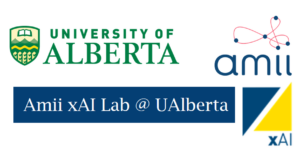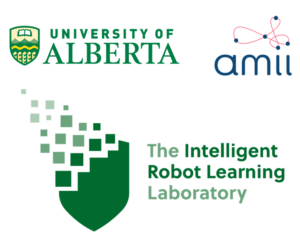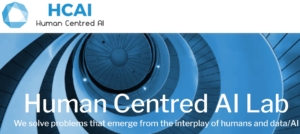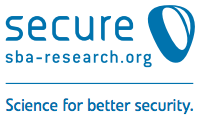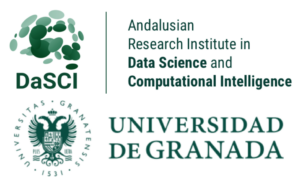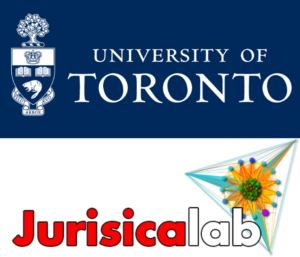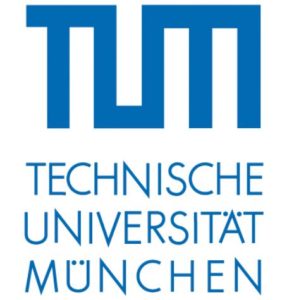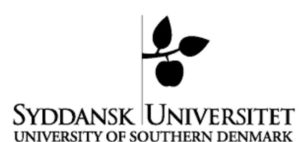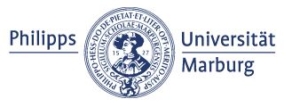|
We are working closely with the established XAI lab at the Department of Computing Science and the Alberta Machine Intelligence Institute (amii) at the University of Alberta, Edmonton, Canada, led by AI pioneer Professor Randy GOEBEL. There are also cross connections to the new Drones for Wildfire Management project, led by Dr. Jeff BOISVERT and Prof. Mike FLANNIGAN and also in cooperation with the Faculty of Agricultural, Life and Environmental Sciences. The vision of the amii XAI lab is to push the boundaries of scalable methods for building domain models that support the explanation of AI system behavior. We are working together to combine probabilistic and (onto)logical approaches. We already share a track-record and have jointly published several Springer LNAI volumes and are currently working on a Springer LNAI volume 13200 on xxAI. We also organize our annual workshop on explainable AI, next time 2022 again in beautiful Vienna, Austria. |
|
|
There are cross-connections to the intelligent Robot Learning Laboratory, led by Prof. Matt TAYLOR. The IRL Lab focuses on fundamental reinforcement learning research and applying artificial intelligence to real-world settings in both simulated and physical environments, particularly the Lab works on human-in-the-loop reinforcement leanring and is highly interested in explainable AI and interpretable machine learning. We are working jointly together to make reinforcement learning approaches explainable towards “robot – explain your behaviour”. We also organize a track at our annual CD-MAKE conference next time 2022 again in beautiful Vienna, Austria. |
|
Human-Centered AI Lab (HCAI Lab), Data Science Institute, University of Technology Sydney, AustraliaWe are collaborating with the Human-Centered AI Lab (HCAI Lab) led by Professor Dr. Fang CHEN and Professor Dr. Jianlong ZHOU from the Data Science Institute, Faculty of Engineering and IT at the University of Technology Sydney (UTS) in Sydney, Australia. Our common goal is to make modern AI more explainable, transparent, and trustworthy, and to develop innovative ethical AI solutions that support human well-being, environmental sustainability, and effective human-AI collaboration. Here are cross connections to the famous Australian Food Agility project. |
|
|
The focus of the research group headed by Prof. Dr. Simon MAYER is the explorations of interactions among devices and people in ubiquitous computing environments (Cyber-physical systems). A particular focus is on the integration of physical things into the Web, on increasing the autonomy of Web-enabled devices, and on making interactions of connected devices intelligible for people. The group of Professor Mayer researches generally on autonomous agents and to support transparent and trustworthy interactions with people, e.g. in application areas ranging from industrial manufacturing to counteracting online disinformation. We are working together on the intersection of explainability, interpretability and counterfactuals. |
|
|
We have been cooperating with Fraunhofer institutes for a long time, in several international projects in the past, e.g. with the Institute for Experimental Software Engineering (IESE), Prof. Dr. Dieter ROMBACH (now Prof. Dr. Peter LIGGESMEYER), leader of the Leitproject Cognitive Agriculture, we have a long-standing partnership and had several projects in EU framework projects in the past. With the Institute for Intelligent Analysis and Information systems (IAIS) we were in the digital twin consortium, and with IOSB-INA in Lemgo, Prof. Dr. Carsten RÖCKER, we have a long-standing cooperation and a solid joint track-record in cyber-physical systems with the human-in-the-loop and human-ai interaction (see e.g. . The Fraunhofer IOSB-INA in Lemgo is a leading research institution in the network Intelligent Technical Systems in East Westphalia-Lippe OWL and core partner in the competence center for medium-sized businesses Digital in NRW and are running the SmartFactoryOWL and Lemgo Digital which are outstanding real-world labs to support digital transformation of industry. In the EMPAIA project we are together with the Fraunhofer Institute for Digital Medicine (MEVIS). Last but not least and we are proud to have a recent cooperation with the pioneers in explainable AI, the Artificial intelligence group (Prof. Thomas WIEGAND and Dr. Wojciech SAMEK) of the Fraunhofer Heinrich-Hertz Insitute in Berlin – the flagship institution of FRAUNHOFER Germany, see e.g our joint LNAI on xxAI. |
|
|
Privacy, Data Protection, Data Safety, Data Security are of vital importance in any project which deals with Artificial intelligence/Machine Learning in health informatics. Privacy Aware Machine Learning is very important and also important for the production of open data sets. We have a long term cooperation with SBA-Research (Prof. Edgar WEIPPL) and several successful joint projects, e.g. we are together in the FeatureCloud EU project. |
|
|
We have a long standing cooperation with the Human Technology Center, Prof. Martina ZIEFLE, at the RWTH Aachen University, having joint projects, exchanging researchers and a well documented publication track record. RWTH Aachen University is Germany’s top-ranked University of Technology and among the world leading institutions. |
|
|
We have a strong cooperation and joint track record with the Institute of IT Security Research led by Prof. Peter KIESEBERG. His Institute comprises the two research groups for Secure Societies and Data Intelligence as well as the Josef Ressel Center for Blockchain Technologies & Security Management. |
|
|
We have a good cooperation with the Andalusian Research Institute in Data Science and Computational Intelligence (DaSCI Institute), led by Director Francisco HERRERA TRIGUERO, and particularly with Professor Natalia DIAZ-RODRIGUEZ, well- known expert in autonomous systems and robotics with deep reinforcement learning, state representation learning and explainable AI – particularly in neuro-symbolic approaches to practical applications in Artificial Intelligence. The DaSCI Institute arises as an initiative of the universities of Granada, Jaén and Cordoba to promote the work of a group of Andalusian AI. The DaSCI Institute aims to promote research, innovation and technology transfer in AI to our socioeconomic environment, sharing common objectives, knowledge and infrastructures with the other Andalusian agents. They have a good motto: “If you want to go fast walk, alone; but if you want to go far, go accompanied” – and we want to go far. |
|
|
With the Data Science Discovery Centre (Jurisica Lab) of the University of Toronto, Canada, together with the Ontario Cancer Institute in Toronto, the Princess Margaret Cancer center and the Krembil Research Institute, we have a long term cooperartion and work on knowledge discovery and interactive machine learning methodologies to help to fight cancer, supporting our “in memoriam” appoach, see e.g. our TUGROVIS project. In particular we have with Professor Igor JURISICA a strong track record. Igor is long time Visiting Scientist at IBM CAS, and Adjunct Professor at the School of Computing, Pathology and Molecular Medicine at Queen’s University and an adjucnct scientist at the Institute of Neuroimmunology of the Slovak Academy of Sciences in Bratislava, Slovakia – 60 minutes away from Vienna. |
|
|
The Austrian Institute of Technology is a long term partner of us having a number of joint projects, and a well established publication record for a long time. Recently, we are together in the H2020 857156 openQKD Open European Quantum Key Distribution Testbed. Optical computing is a very important foundation for future AI technologies and will be important for future human-ai interaction. |
|
|
Springer/Nature (Berlin-Heidelberg) is a long established publication partner, and we published a number of volumes, which we are very proud of being amongst the 20% top selling books, e.g. Lecture Notes in Artificial Intelligence LNAI 9605 (see news here), the most recent volume launched is LNCS 11713. Currrently, together with the XAI-Lab in Edmonton we are working on a LNAI Volume on AI/Machine Learning for Digital Pathology with a strong focus on explainable AI. |
|
|
Extending the work of Professor Friedrich WINGERT the company Information and Documentation in health services (hence the name ID) develops tools for documentation in hospitals and we had two joint projects which led to novel algorithms, tools and a solid publication output. Together with ID Berlin we are currently exploring novel methodological approaches on the combination of probabilistic machine learning with standardized terminologies and (onto)logical approaches, to foster explainable AI. |
|
|
Together with Prof.Vasile PALADE (formerly Computing Department at Oxford University), now head of the Cogent Computing Lab at Coventry University, we are working on advanced methods of machine learning. We have a well established joint track record and a organized a number of workshops together. |
|
|
Together with Prof. Raul RABADAN we are working towards machine learning solutions to gain knowledge out of big, complex data sets. |
|
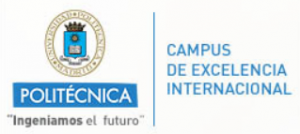 |
Universidat Politecnica de Madrid, SpainWe have a cooperation with the Department of Computer Systems Languages and Software Engeneering, Faculty of Computer Science of Universidad Politecnica de Madrid (UPM) and particularly with the Data Mining and Data Simulation Group at the Center of Biotechnology at UPM. |
|
We have a cooperation with the Language Technology Group of the Unviersity Hamburg and a joint project on machine learning from biomedical text data (DFG BIMDANUBE). |
|
|
We have a cooperation with the Artificial Intelligence Laboratory at Hanyang University in Seoul with a focus on large-scale machine learning tasks. They are also working on deep learning, adversarial learning, sparse coding and probabilistic graphical models – to learn structures from high-dimensional data an using novel information for more effective learning and inference. |
|
|
We have a long term cooperation with BBMRI.at – the state-of-the-art top-end biobanking infrastructure in Austria, coordinated by Professor Kurt Zatloukal, providing technical infrastructure and expertise. BBMRI.at is the Austrian National Node of the European biobanking research infrastructure BBMRI-ERIC – the European research infrastructure for biobanking. BBMRI.at consists of and links Austrian universities and biobanks with the goal to establish a national biobanking research infrastructure for accelerating biomedical research. These are prerequisites to facilitating access and fostering the use of biological samples and data for academic and industrial research. Biologic samples and data collected in biobanks are valuable resources for innovations in precision medicine. |
|
|
We have a cool cooperation with the Baumbachlab at the TU Munich, where we are jointly working on novel issues of federated machine learning and privacy-by-design approaches. TU Munich is coordinating our H2020 project FeatureCloud on privacy-aware artificial intelligence for biomedical data mining from January 2019 on. |
|
|
We work together with the Roettger Group on supervised/unsupervised clustering techniques with and without a human-in-the-loop as one aspect for explainable AI. |
|
|
We work together with the Heider Lab within our FeatureCloud EU project.They are specialized on machine learning algorithms for predicting drug resistance of pathogens and for modeling diseases, and develop novel methods and algorithms for analyzing (meta-)genomic and (meta-)transcriptomic data of microorganisms, as well as genome assembly and functional annotation. |


